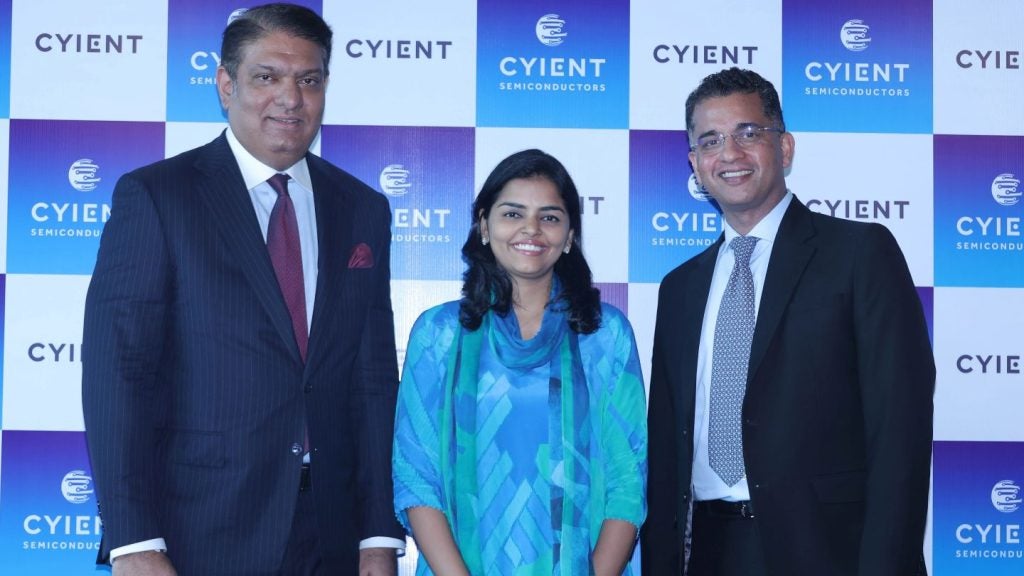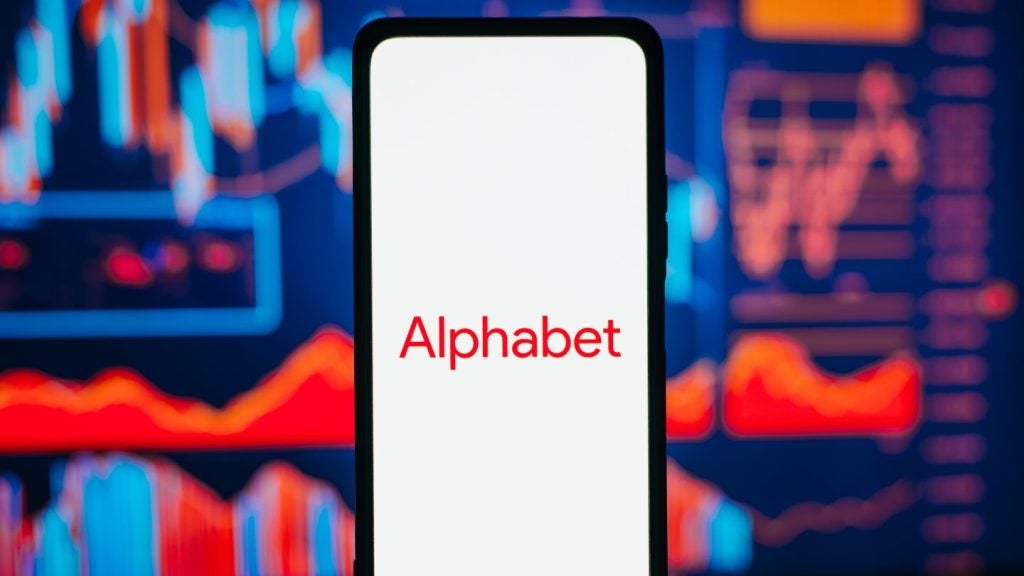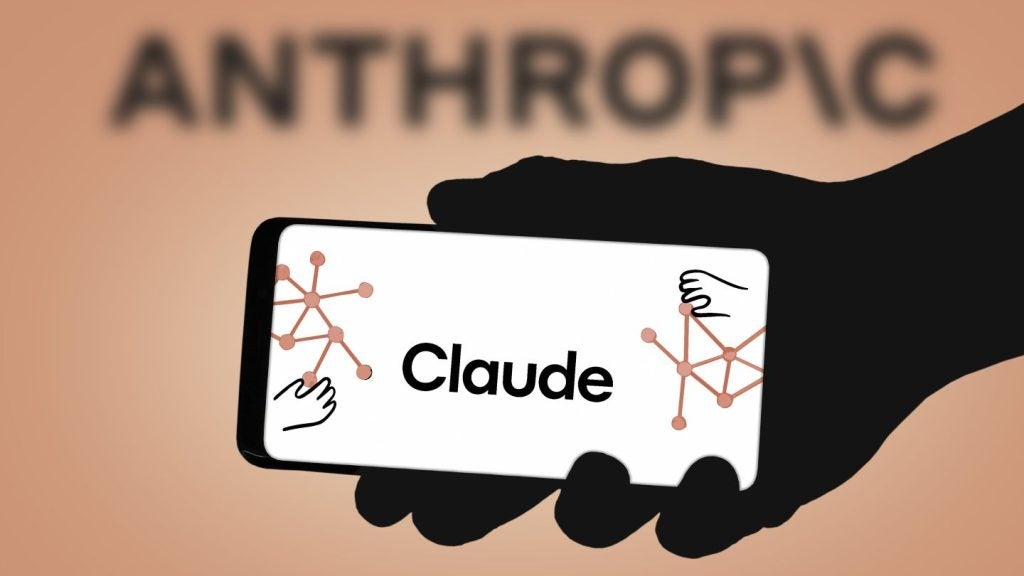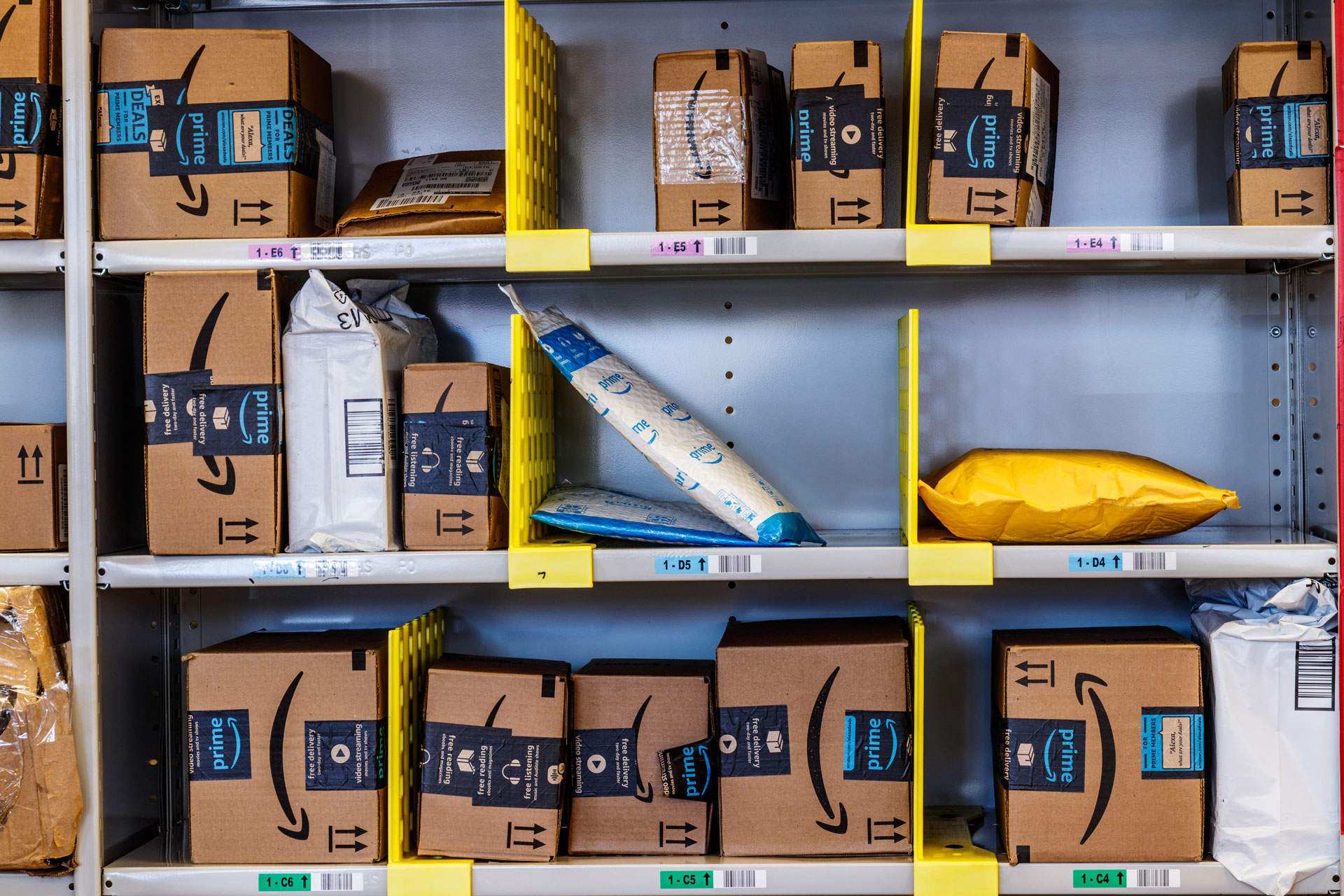
Amazon is progressively increasing its presence in the retail sphere, from the acquisition of up-market grocer Whole Foods for $13.78bn last year to the opening of its first physical store, Amazon Go, in Seattle in January.
This week the retail giant has announced its entry into the pharmaceutical retail space by acquiring online pharmacy PillPack. Here we look at the acquisitions that saw Amazon go from a small online bookseller to world’s biggest e-commerce company, valued at $842bn.
To date, Amazon has completed 86 acquisitions since 1998.
Amazon’s share price growth (source: Google)
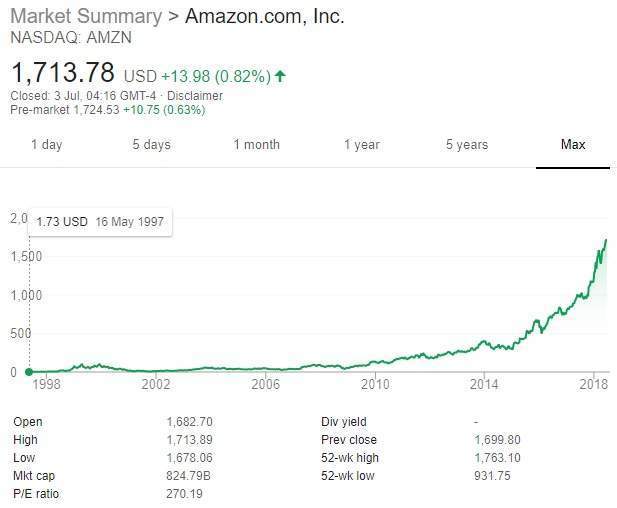
A list of key Amazon acquisitions
May 1999 – Alexa.com
Founded by an independent company in 1996, Alexa has been owned by Amazon since 1999 after a $250m deal. The now popular device was originally a website where data on internet browsing was transmitted after being collected by a special toolbar.
August 2004 – Joyo.com
Amazon bought into the Chinese market with a $75m purchase of Joyo.com. The company markets the same core items as Amazon, including books, music and videos. It is was the largest online bookseller in China at the time. As part of the deal, Amazon also gained possession of several Chinese subsidiaries and affiliates controlled by Joyo. It was Amazon’s second entry into the Asia-Pacific region, where it also operates a site serving the Japanese market.
March 2008 – Audible
Amazon’s acquisition of Audible was a move to bolster its audio download offering, as it has been building a digital music store to compete with Apple’s iTunes, and has signed deals with major music companies such as Vivendi’s Universal Music Group and Warner Music Group Corp. Amazon acquired the company for $300m.
July 2009 – Zappos
Zappos – an online-based clothing retailer – wanted to join forces with Amazon in order to increase both companies’ bottom lines, increase sales, bring better customer service and continue to move forward in their online business concepts. Amazon completed the $1.2bn transaction in 2009, allowing Zappos to retain its management team and run the company under the same brand.
January 2011 – Lovefilm
The UK-based company, with over 14 million customers across several countries, was acquired by Amazon for $312m. Lovefilm allowed Amazon – which already had been selling films on Blue-ray, DVD and PC as well as video games – to sell more online video. The deal helped Amazon to better compete with US streaming giant Netflix.
June 2011 – Quidsi
Quidsi, the parent company of diapers.com and soap.com, was acquired by Amazon for $500m. Reportedly, Amazon’s CEO Bezos believed he could make things a little more easy for parents by giving them the ability to get diapers delivered quickly to them at low prices. As well as taking over the company, Amazon has also acquired $45m of Quidsi’s debt.
March 2012 – Kiva Systems
Amazon purchased Kiva Systems, a technology company that builds robots that are designed to work around warehouses, for $775m. The acquisition allowed Amazon to fulfill growing sales, as the robots are designed to zip through the centres collecting orders off shelves and bring products directly to the workers. It was one of the largest acquisitions by Amazon to date.
September 2014 – Twitch Interactive
Twitch Interactive is a video game streaming company that allows users to create their own channel and not only play games, but create commentary about the game they play. It was acquired by Amazon for $1bn. Google was also rumoured to be interested in acquiring the company.
January 2015 – Annapurna Labs
Amazon acquired the Israeli chip start-up company founded in 2011, for $370m. The deal between the companies allowed Amazon to use Annapurna’s chip design to make its AWS cloud computing business more efficient and cost-effective.
September 2015 – AWS Elemental
Founded in 2006, Elemental is a company that provides software to enable the delivery of multi-screen video content. Amazon acquired the company to help it deliver content over PCs, tablets, phones and TVs for $296m.
March 2017 – Souq.com
Souq.com is the Arab world’s answer to Amazon. It is a retail marketplace that features over 8 million products in 31 different categories, including fashion, health, beauty, electronics and baby products. At the time of purchase, the site had millions of visits each month and Amazon has recognised that together they could boost both companies’ sales and capabilities. Amazon paid $580m for the company.
June 2017 – Whole Foods
The $13.7bn deal to buy the upmarket US-based grocery chain was Amazon’s biggest acquisition to date. With Amazon on board, Whole Foods will be able to benefit from the same type of technologies that Amazon has brought to the other stores.
December 2017 – Blink
The maker of wire-free home monitoring systems was acquired by Amazon for $90m. The deal allowed Amazon to sell Blink’s indoor and outdoor home security systems, as well as its video doorbell. The acquisition took place a couple months after Amazon launched its Cloud Cam security camera.
February 2018 – Ring
Amazon increased its foothold in the smart home space by acquiring a smart doorbell maker Ring. Amazon kept the core of the Ring business intact while integrating its work into the Amazon ecosystem. The $1bn purchase should help Amazon’s overall hardware business, as well as provding competition for Google’s Nest.



